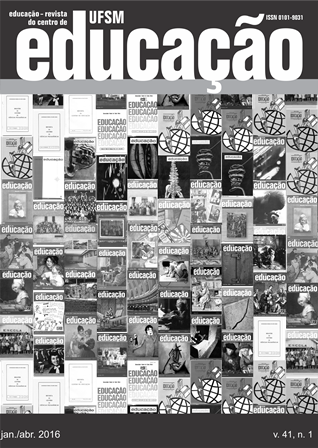Qualification and teachers training: interdisciplinarity in the meetings per area in polytechnic
DOI:
https://doi.org/10.5902/1984644416165Keywords:
Teacher training, Interdisciplinarity, Polytechnic education.Abstract
This article is meant to present, through an ethnographic qualitative research, via the use of observation and logbook, how meetings of the knowledge area among high schoolteachers in polytechnic may favor interdisciplinarity, qualification and teacher appreciation, in order to maximize the process teaching-learning and minimize rates of repetition and dropout basic education in the Gaucho state. I was examined that the interdisciplinarity idea can’t be restricted to an internal process to the respective areas, but among the curricular components of other sciences, in the case of a process instigate collective research and critical; a way of reframing the methodology so that the student can understand different branches of knowledge assumptions as to the axes of the polytechnic.Downloads
Published
How to Cite
Issue
Section
License
Declaration of originality
We declare that all articles present in the journal Educação (UFSM) are originals and were not submitted for publishing on any other publication, as a whole or a fraction. We also declare that, after being published by Educação (UFSM), a paper will not be submitted to another journal within two years. After this time, our journal transfers the publishing rights to the authors, with a permit granted by the Editorial Council.
We also acknowledge that the originals’ submission to Educação (UFSM) implies on a transference of copyright for physical and digital publishing to the journal. In case of noncompliance, the violator will receive sanctions and penalties predicted by the Brazilian Copyright Protection Law (n. 9610, dated 19/02/98).
Attribution 4.0 International (CC BY 4.0)
This license lets others remix, transform, and build upon the material for any purpose, even commercially, and copy and redistribute the material in any medium or format.

This work is licensed under a Creative Commons Attribution 4.0 International (CC BY 4.0)






